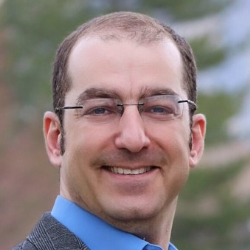



Trauma Specialist Qualification: Core-Focused Treatment for Evidence-Based Outcomes
Trauma Specialist Qualification: Core-Focused Treatment for Evidence-Based Outcomes
Pricing
Information
Recorded
-
-
-
-
Note:
To be recognized as a Qualified Trauma Specialist, you can complete your certification process and claim your certificate. Please visit trauma-specialist.org after registering.
Description
Crucial Need for Qualified Trauma Treatment Providers
All licensed mental health professionals need to be qualified in trauma resolution. Many co-occurring DSM disorders—including substance use, borderline personality, compulsive behaviors, anxiety, and depression—have their origin in traumatic experiences. Additionally, trauma is a contributing factor to numerous medical concerns including migraine headaches, fibromyalgia, gastro-intestinal conditions, etc. To be a trauma specialist, licensed professionals must be qualified in a methodology that assures measurable and reliable outcome-based treatment.
Gray Otis, PhD, LCMHC. Sandi Williams, LMFT, and Dan Kaufmann, PhD at the National Board for Trauma Specialists developed a groundbreaking trauma treatment approach. The Core-Focused Treatment methodology addresses the individual’s prior traumatic experiences, while promoting holistic health and reinforcing inherent strengths. Rather than getting stuck in the past, each person is effectively guided to achieve enduring trauma resolution.
Although every licensed mental health professional should be proficient as a qualified trauma treatment specialist, many do not have the crucial training or experience. Often, graduate programs do not specifically address treatment, and several post-graduate trauma training options are expensive. Yet it is crucial that licensed mental health professionals become trauma specialists, which they can accomplish through training and certified qualification. The Core-Focused Treatment training program covers each aspect of treatment, including a step-by-step approach to resolve the underlying causes of co-occurring related disorders. This approach to treatment often achieves substantiated outcomes in remarkably few sessions.
Trauma Specialist Training Requirements
Counselors seeking a proven methodology are invited to consider this training to become recognized as a Qualified Trauma Specialist. In 16 hours of training, participants learn the crucial tools to apply in treating trauma and co-occurring disorders. This comprehensive methodology can be integrated with any other therapeutic approach, including CPT, EMDR, CBT, etc. Participants will be given a digital (pdf) copy of “Key Core Beliefs Trauma Care: The Clinician's Guide to Core-Focused Treatment,” and access to over 12 hours of supplemental videos.
Participants must attend all training modules. Training modules will be recorded for future reference.
Learning Objectives
Participants will be able to:
-
Describe and apply outcome-based treatment trauma and comorbid disorders.
-
Assess trauma and coincidental diagnostic conditions.
-
Identify trauma-related DSM disorders.
-
Describe the underlying core beliefs of disorders with multicultural considerations.
-
List the essentials for holistic treatment and trauma fitness.
-
Identify the key skills required for trauma care.
-
Select appropriate assessment instruments.
-
Describe six components for treatment.
-
Describe and applies proven measures of the therapeutic alliance.
-
Assess evidenced-based, outcome measurements.
Target Audience
- Addiction Professional
- Counselor
- Marriage & Family Therapist
- Psychologist
- Social Worker
Presenters
Financially Sponsored By
- American Mental Health Counselors Association (AMHCA)
- National Board of Trauma Specialists


